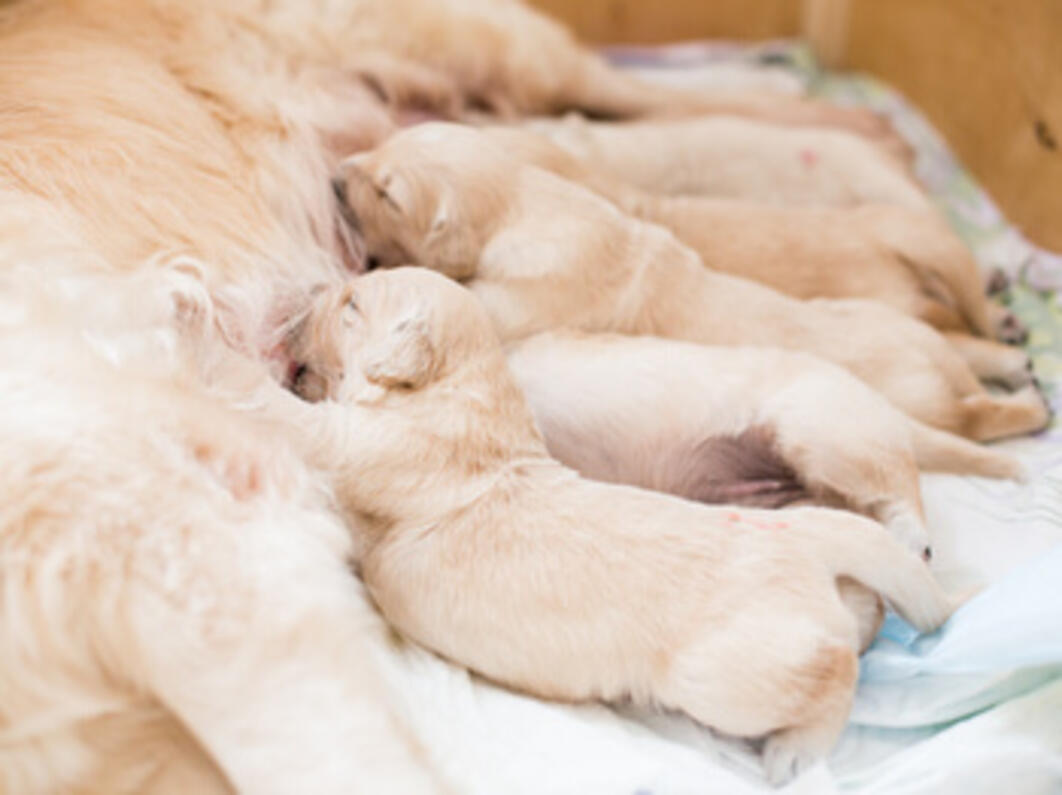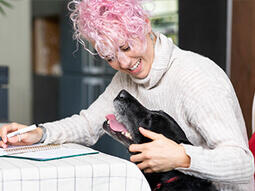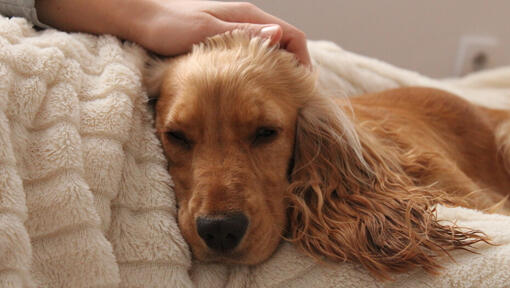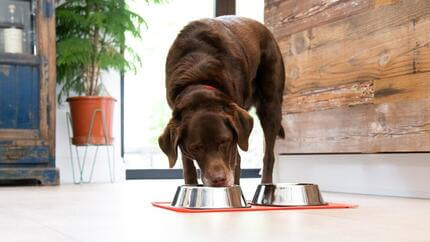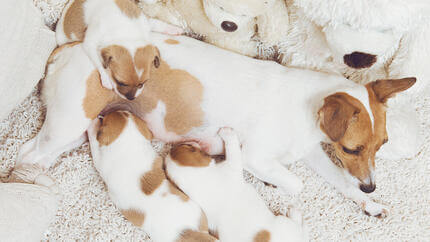
Your bitch is about to become a proud mum, and soon she’ll have some adorable new pups to care for – how exciting! The great news is that most canine pregnancies are problem-free and dogs generally make excellent mothers.
Even though dog birthing problems are very rare, there are a few things to keep an eye on before, during and after labour. If you’re at all worried at any stage your vet will be more than happy to give you advice.
Things to look out for during dog pregnancy
Although dogs usually enjoy hassle-free pregnancies, there are a few signs that could suggest complications. Contact your vet if:
- Your bitch goes off her food during pregnancy or is unwell in any other way. It’s fairly common for bitches’ appetites to drop after 30 days of pregnancy or just prior to your dog giving birth, but she should be bright and well in every other way.
- Any abnormal vaginal discharge occurs including bleeding, or a foul-smelling discharge, at any point in the pregnancy.
- She is unwell at all, acts depressed, is crying or in pain.
- Mum miscarries puppies during the pregnancy.
- More than 70 days of pregnancy have passed since mating.
Warning signs for dog labour problems
Luckily, most dog labours are not as dramatic as ours. Your dog should be more than capable of handling giving birth by herself, but complications can occasionally occur. Contact your vet if:
- Mum fails to go into labour within 24 hours of her temperature dropping. The lowered dog labour temperature is usually a sign that the puppies are on their way, so if they don’t come, something might be wrong.
- Despite strong contractions for 20-30 minutes, your bitch has failed to produce a puppy. Contact your vet, and be prepared to take any puppies already born with you if you go to the surgery.
- No puppy is born within four hours of your bitch passing a green or red/brown vaginal discharge (after two hours, be prepared to call the vet).
- More than two hours pass with your bitch resting or having only weak contractions between pups, and you know there are more inside.
- You can see a puppy at the vulval entrance but although your bitch is straining, it fails to deliver.
- Your dog has been in second stage labour for more than 12 hours (second stage is when puppies are being born).
After your dog’s labour and delivery
Hurrah – your new arrivals are here! It’s a very exciting time for you and your pet, but you should still be vigilant as problems can still happen after labour. Keep an eye on the proud new mum, and contact the vet if:
- Your bitch has not passed all the placentas you would expect (there should be as many as there are puppies).
- Your bitch shows signs of twitching, nervousness, restlessness and a stiff, painful gait, or seizures, which may be a sign of a calcium deficiency called hypocalcaemia.
- She has a fever, is unwell with a loss of appetite, is listless or lacks interest in the puppies. Any of these could indicate an infection within her uterus.
- Your bitch continues to strain after producing all the puppies you were expecting.

- She has a fever, is unwell with a loss of appetite, is listless or lacks interest in the puppies. Any of these could indicate an infection within her uterus.
- Her mammary glands are red, firm and painful, or discharge from her nipples is smelly, brown or bloody.
- Your bitch is unwell in any other way, not eating, depressed, has diarrhoea or is losing weight.
- She has a foul-smelling or very bloody vaginal discharge (blackish/reddish discharge is normal for the first few weeks after birth).

- More than one of her puppies dies or you are concerned about the wellbeing of others.
- Any of her puppies appear depressed or reluctant to feed. This is known as ‘fading’ puppies.
